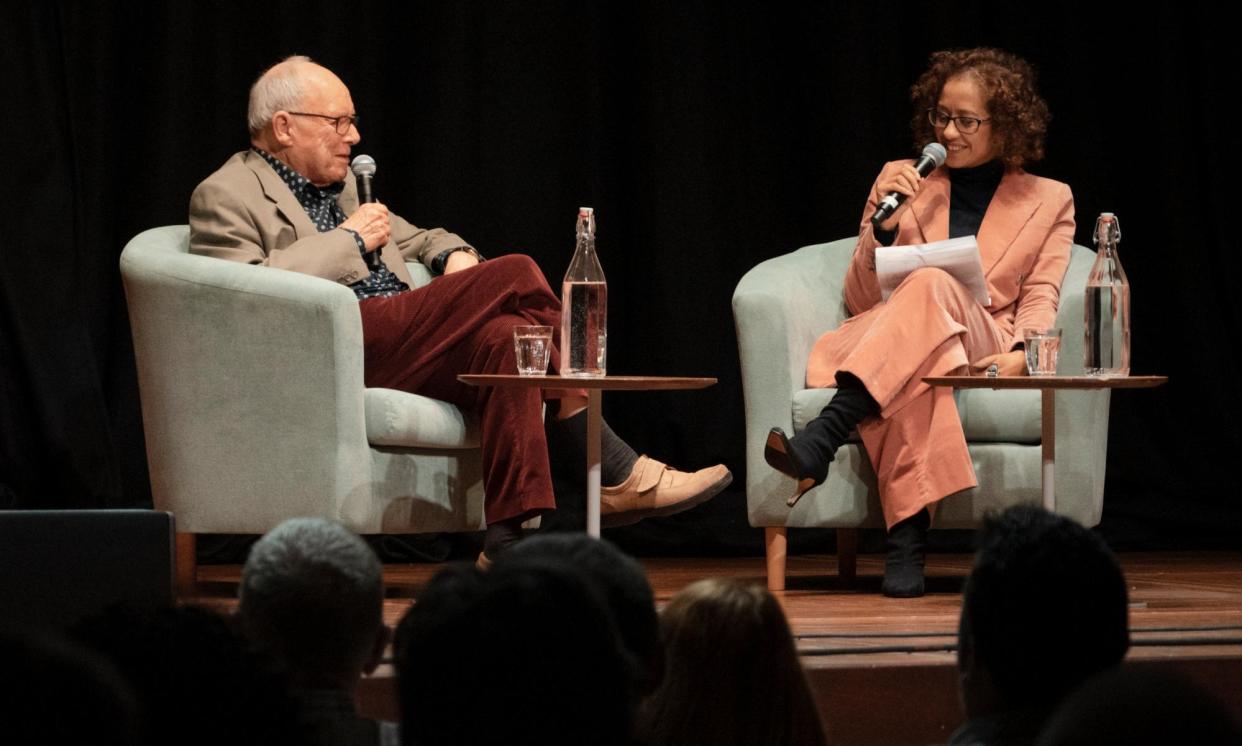Reappraise The Goodies as a catalyst for social change, says Samira Ahmed

They may be best remembered for wacky props such as their oversized flat caps and a bicycle made for three as well as their banging theme tune “Goodies, goody goody yum yum”.
But it may be time to reassess the surreal 1970s and early 80s sketch show The Goodies and regard it not just as silly fun but as a catalyst for social change.
At an event held as part of the Slapstick festival in Bristol, the broadcaster Samira Ahmed said the serious side of the show had been forgotten and that it was worth remembering how it had challenged attitudes of the time by defying gender stereotypes and boldly addressing topical issues, including censorship, apartheid and police brutality.
In The Thinking Woman’s Guide to The Goodies, staged at the Bristol Beacon, Ahmed, who said she loved the show as a child and adult, said it was high time to come at it from a different angle.
“This idea grew up that somehow The Goodies was a children’s show or a show aimed at a younger family audience, but it’s clear from watching many of the episodes that it was much more grown-up,” she said.
Ahmed was speaking to Graeme Garden, one of the three Goodies along with Tim Brooke-Taylor and Bill Oddie. Garden said the original intention had been mere silliness.
“We had no intention of it being satirical until we realised that to film half an hour you have to have a reason. You can’t just do a silly idea for three minutes and stretch it out for 30,” he said. “We had to have a topic. The easiest way was what was in the world around us: the news, the latest films and plays and books. That was how we drifted into satire.”
Garden said the trio used to get together for what they called a “Panorama meeting” to choose which issues or themes of the day to target and how to ridicule them.
Clips shown at the event included Give Police a Chance, a show from 1970 filmed after Oddie had a run-in with the law in which a couple of officers cause havoc in the Goodies’ office. Garden said it was not one of their funnier episodes but it made Oddie feel better.
Another clip from a 1971 episode called Pollution featured a “Ministry of Pollution” whose job it was to worsen rather than improve air and water quality.
Superstar, an uncomfortable and prescient episode from 1973, has Oddie playing a pop star called Randy Pandy and young women being brought in a lorry to the BBC and herded into a Top of the Pops studio by a shepherd. Garden said they had “no insight” into scandals such as Jimmy Savile’s crimes but felt uneasy about how young women were treated in such programmes.
Garden was keen to stress they did not always get it right and there were moments that looked very of their time.
Ahmed said her favourite episode was the 1975 Cunning Stunts, in which a female newspaper boss sexually harasses Garden and Brooke-Taylor, a reversal of the typical scenario.
She said she and her sister used to be able to quote chunks of it, and that when she took the BBC to an employment tribunal over equal pay she would chant one of the lines the female boss says to herself as she walked in every day: “If you don’t want it tweaked again don’t flaunt it.”
“That episode was so powerful,” she said.

 Yahoo News
Yahoo News 
